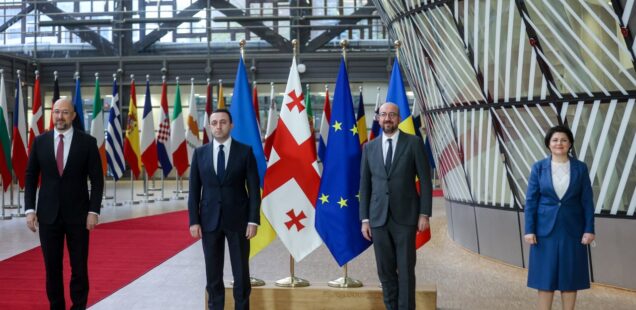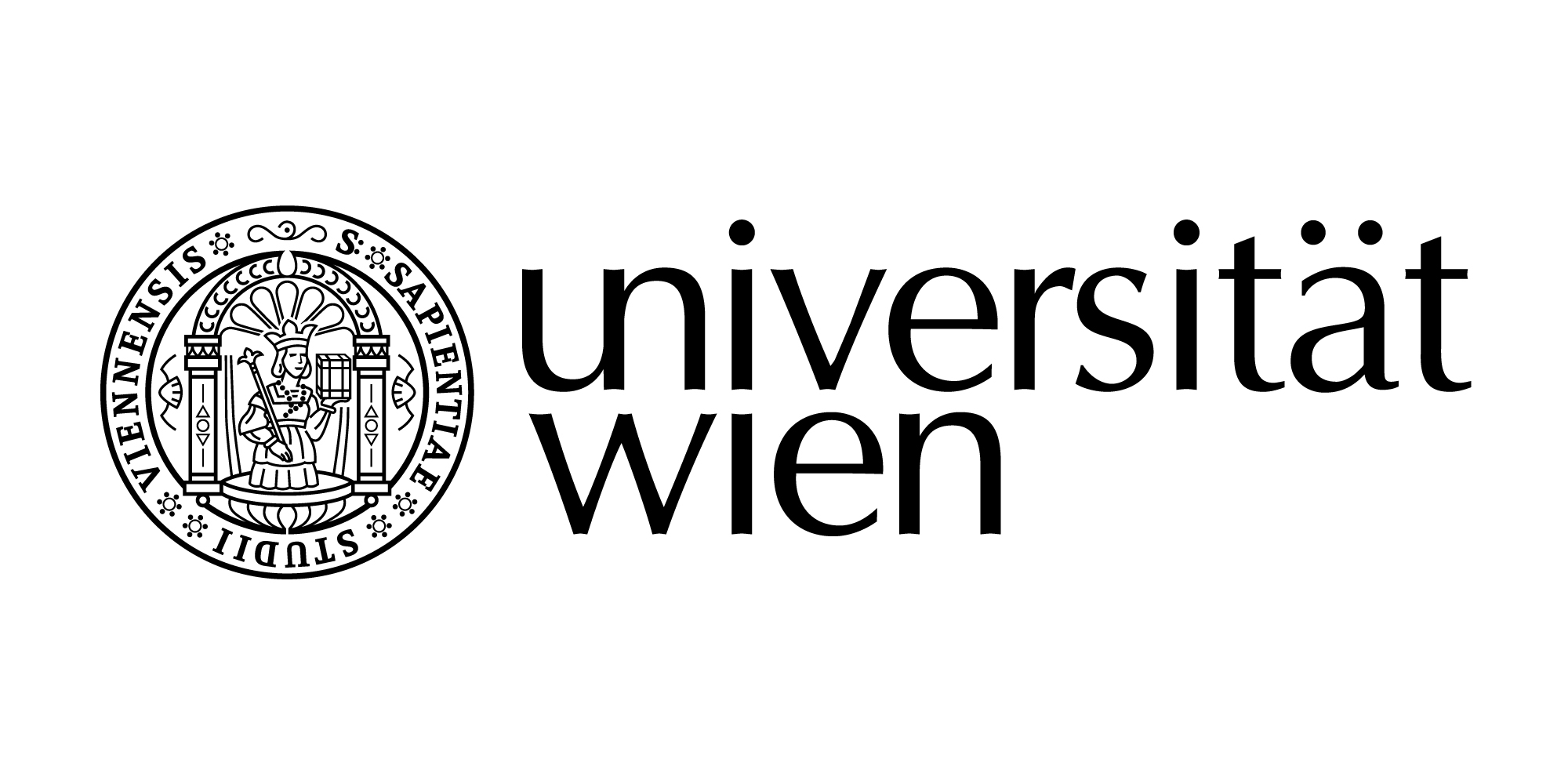
EU Puts Brakes on Georgia’s Membership Hopes
On 23 June 2022, the EU granted official candidate status to Ukraine and Moldova, but to Georgia it issued a new list of fulfilment criteria and a European ‘perspective’. These new criteria present a great hurdle for Georgia to overcome in order to achieve candidate status, at a time when the Russian threat looms larger than ever.
Six months on from the Russian invasion of Ukraine, war still rages in eastern parts of the country. But just as we see the terrible consequences of the conflict for Ukraine domestically, we also see the external consequences of Russia’s aggression. As the balance of global power shifts towards authoritarian states, the impact on the smaller countries caught up in the geopolitics is magnified. One such country lying on the faultline between Russia and the West is Georgia.
Like Ukraine, this former Soviet republic has in recent years been pursuing a Western path of development, with the ultimate goal of joining the Euro-Atlantic structures of the European Union and NATO. Georgia has also felt the sting of Russian military aggression; in 2008, Russia invaded Georgia and occupied the territories of Abkhazia and South Ossetia after Georgia sent forces into the latter in response to South Ossetian separatists breaking the ceasefire.[i] Though legally recognised parts of Georgia, the two ‘de facto’ states of Abkhazia and South Ossetia are, for all intents and purposes, now independent states recognised only by Russia and a handful of other countries, including Venezuela and Syria. They are almost entirely dependent on Russia economically and Russia exerts power over them.
Ukraine and Moldova receive candidate status, but not Georgia
Georgia, like Ukraine and Moldova, has been termed one of the ‘Association Trio’ because it signed in 2014 an association agreement with the EU, with which it has established a Deep and Comprehensive Free Trade Area and a visa-free travel regime. The Trio had been moving forward together and it was therefore a great blow to Georgia when it was not offered EU candidate status like Ukraine and Moldova on 23 June. To achieve this milestone, a number of other criteria were set out for Georgia by the EU, mainly concerning improvements to its political and legal systems. However, some conditions, put in notably ambiguous terms by the European Commission, include “de-oligarchisation” as well as the de-polarisation of Georgia’s political environment.[ii] These conditions raise some problems for the country.
Firstly, to ‘de-oligarchise’ is a clear jab at the unofficial rule of Georgia’s (only) oligarch and former president Bidzina Ivanishvili. The billionaire’s control over the current ruling party, Georgian Dream, means that Georgia fails to live up to EU standards of political accountability and anti-corruption, and makes decision-making processes unacceptably opaque. In any case, the EU’s implicit demand that Georgia de-oligarchise by “eliminating the excessive influence of vested interests in economic, political, and public life”[iii] – or removing the influence of Bidzina Ivanishvili – is a massive underestimation of the challenge that presents to Georgian society. Ivanishvili is Georgia’s wealthiest person and Georgian Dream was established by him. His business interests play an enormous role in Georgia’s economy and strategic direction. It was when he came to power in 2012-2013 that Georgia opened its economy back up to Russia. To demand that Georgia eliminate Ivanishvili’s excessive influence while his own party is in power may be asking too much. Moreover, to require de-oligarchisation from Georgia and not Ukraine or Moldova indicates a double-standard being applied by the European Union.
The second issue, regarding de-polarisation “through ensuring cooperation across political parties in the spirit of the April 19 agreement”, is also tough given the level of political division in Georgia. In addition to being difficult to measure, neither Georgian Dream nor the United National Movement (UNM), Georgia’s largest opposition party founded by Mikheil Saakashvili, seem to be able to reconcile their differences. The EU-brokered agreement on 19 April 2021 sought to break the political deadlock in Georgia and get opposition MPs back into their seats after they refused to recognise the results of the last parliamentary election. The UNM rejected the agreement, while Georgian Dream backed out of it on 28 July 2021.[iv] The failure of the accord also reflected badly on European Council President Charles Michel, who spent a long time trying to mediate it.
One could argue that the EU is now using the granting of candidate status to Ukraine and Moldova, and the resulting disappointment in Georgia, as a means to bring about change in Georgian politics.
A wasted opportunity
Although internal politics is an endless headache for Georgia, it is the country’s geography that provides the larger threat. Lying next to Russia, which currently occupies 20% of its territory and is engaged in a vicious war in Ukraine – a much larger country undergoing a similar process of westernisation – one might forgive Georgia for being cautious in its relations with the EU and Russia. In order not to antagonise the Kremlin during this extremely precarious time, the Georgian government must take special measures, even if that means, behind closed doors, putting the brakes on Euro-Atlantic integration. Unlike Finland and Sweden, Georgia cannot simply knock on NATO’s door and expect entry. Pragmatism is the word of the day, hence why Georgia did not join Western sanctions on Russia.[v]
In spite of this, however, the EU would have been wise to grant Georgia candidate status. This would have sent a signal of solidarity to Georgian society, preserving and reinforcing support for Western integration. It would have been easy for Brussels to give the green light to Tbilisi to begin a process that will likely take decades, and the dividends of reaffirming pro-Europeanism in Georgia would have been enormous. The EU’s decision to instead move ahead without Georgia has dealt a blow to Georgian society’s hopes of European integration when now should be the time to reassure Georgians (along with Ukrainians and Moldovans) that their place is in Europe, regardless of internal political squabbles.
Like most other post-Soviet states, Georgia is struggling with its own process of ‘westernisation’ – the adoption of human rights, strengthening the rule of law, and developing democracy. Having only ever had democracy in the brief period between the collapse of the Russian Empire (1917) and being reconquered by the Soviet Union (1922), since regaining its independence in 1991 Georgia has tried to affirm its European identity and commit itself to the three aforementioned pillars of westernisation.
But the country is a prisoner of geopolitics; on the far side of the Black Sea, Georgia’s neighbours are not Austria or Italy, but Russia, Turkey and Azerbaijan. In a sea of growing authoritarianism, Georgia resembles an island of democratic progress. And since support for westernisation in Georgia is closely tied to the narrative that Georgia is a ‘European’ country, gestures like granting candidate status from the EU’s side can be very positive influences.
If the ultimate goal is for Georgia to join the EU someday, then EU decision-makers should ask themselves whether this would best be achieved by setting unrealistic (and unfair) conditions or by motivating Georgians to fulfil the membership criteria through tangible actions like granting candidate status, which would give them a real European perspective.
Cover image: Kmu.gov.ua, CC BY 4.0 <https://creativecommons.org/licenses/by/4.0>, via Wikimedia Commons, no changes made.
https://commons.wikimedia.org/wiki/File:PM_of_Ukraine,_Georgia_and_Moldova_met_with_President_of_the_European_Council_Charles_Michel_Img2502-1.jpg
[i] https://web.archive.org/web/20140528093856/http://edition.cnn.com/2014/03/13/world/europe/2008-georgia-russia-conflict/
[ii] https://ec.europa.eu/commission/presscorner/detail/en/qanda_22_3800
[iii] https://ec.europa.eu/commission/presscorner/detail/en/qanda_22_3800
[iv] https://www.euractiv.com/section/europe-s-east/news/ruling-party-in-georgia-dumps-charles-michels-agreement/
[v] https://eurasianet.org/georgia-says-it-wont-join-international-sanctions-against-russia


